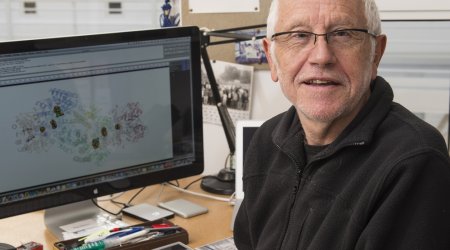
Professor Ray Dixon
The Dixon group focuses on molecular understanding of biological nitrogen fixation in bacteria and its regulation in response to environmental cues
PEOPLE - Professor Ray DixonPlants and humans can only absorb and use ‘fixed’ nitrogen, thus producing fixed nitrogen that is an essential component of life
Nitrogen Fixation has been an area of research at the John Innes Centre for almost half a century.
Plants and humans can only absorb and use ‘fixed’ nitrogen. This is a form of nitrogen combined with hydrogen (to form ammonia) or oxygen (to form nitrate).
Nitrogen is abundant as a gas in the atmosphere, but gaseous nitrogen is unusable by plants and animals.
However, by carrying out the process of biological nitrogen fixation, bacteria and archaea can convert nitrogen gas to ammonia, thus producing fixed nitrogen that is an essential component of life, being a key element in many biomolecules, including for example DNA and proteins.
Some plants, such as legumes, create a symbiotic relationship with nitrogen-fixing bacteria called rhizobia that infect the plant, which in response to the bacteria develops structures known as nodules on the legume roots.
Within the root nodules the symbiotic bacteria develop into organelles that act like nitrogen fixing factories to supply nitrogen to the crop in exchange for carbon provided by the plant. The legume symbiosis is very efficient and can supply all the nitrogen demands of the crop. It is therefore a prototype for engineering nitrogen fixation in the future.
In addition to the legume symbiosis, nitrogen-fixing soil bacteria can associate with cereal crops to meet some of their nitrogen requirements. This process can be improved by inoculating cereals with nitrogen fixing bacteria as biofertilsers.
There are many biofertiliser companies throughout the world that prepare inoculant formulations and sell these to farmers. However, in general this technology is neither as efficient or robust as the legume symbiosis and year to year variations in yield are experienced by farmers. But inoculants are far cheaper than nitrogen fertilisers, so provide cost savings for farmers.
This technology is influenced by plant genotype, climate and soil type and appears to work better in some locations compared with others.

The Dixon group focuses on molecular understanding of biological nitrogen fixation in bacteria and its regulation in response to environmental cues
PEOPLE - Professor Ray Dixon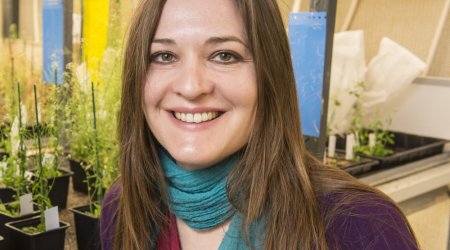
Myriam works on nuclear calcium signalling in plants using root nodulation in response to nitrogen fixing bacteria as a model
PEOPLE - Dr Myriam Charpentier
Marcelo is part a network of UK and Brazilian researchers working to increase crop productivity in Brazil, using diazotrophic bacteria as a source of fixed nitrogen
PEOPLE - Dr Marcelo Bueno Batista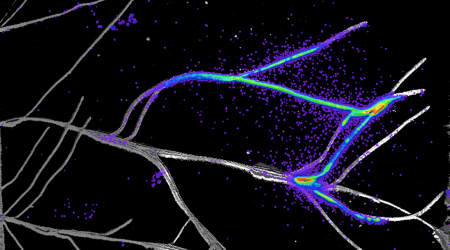
Professor Ray Dixon talks to Alliance for Science Live about his research on nitrogen fixing bacteria and the future of engineering this process to benefit agriculture
BLOG - How can biological nitrogen fixation increase cereal crop yields?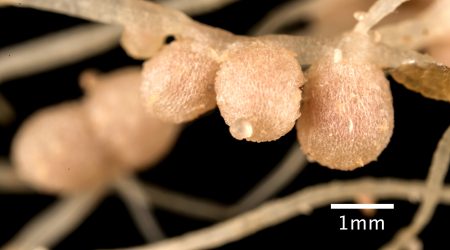
A new way of engineering nitrogen fixation has been discovered by a UK-China research team, bringing us one step closer to realising the goal of engineering a range of crops to fix their own nitrogen
NEWS - Nitrogen fixation engineering in cereal crops moves a step closer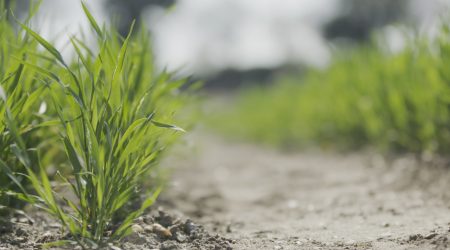
Scientists have discovered an important component in the process of nitrogen fixation in plants
NEWS - Scientists discover missing link in plant nitrogen fixation process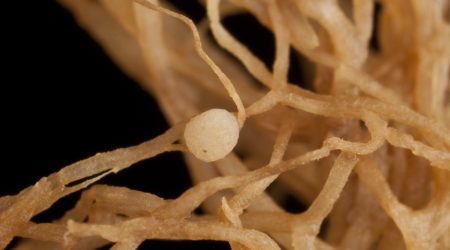
Rhizobia induce nodule formation on legume roots and differentiate into bacteroids, which catabolize plant-derived dicarboxylates to reduce atmospheric N2 into ammonia
PUBLICATION - https://www.jic.ac.uk/research-impact/publications/metabolic-control-of-nitrogen-fixation-in-rhizobium-legume-symbioses/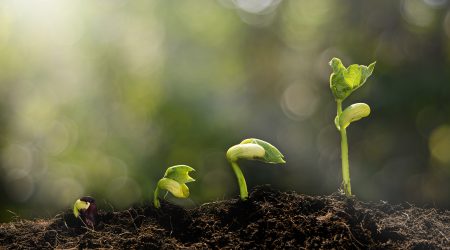
The energetic requirements for biological nitrogen fixation necessitate stringent regulation of this process in response to diverse environmental constraints
PUBLICATION - Disrupting hierarchical control of nitrogen fixation enables carbon-dependent regulation of ammonia excretion in soil diazotrophs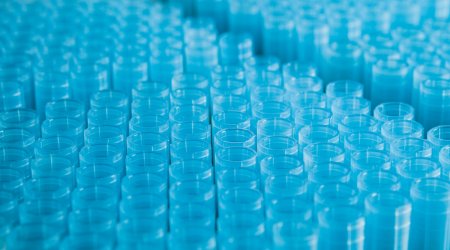
Re-engineering of complex biological systems (CBS) is an important goal for applications in synthetic biology. Efforts have been made to simplify CBS by refactoring a large number of genes with rearranged polycistrons and synthetic regulatory circuits
PUBLICATION - Polyprotein strategy for stoichiometric assembly of nitrogen fixation components for synthetic biology